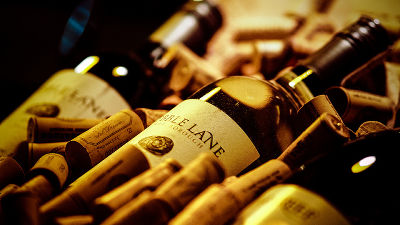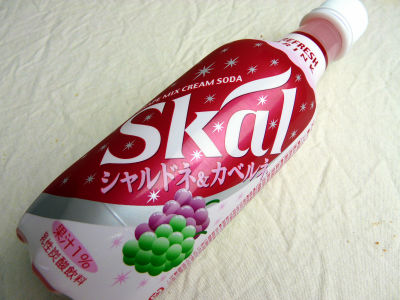Is it true that even experts cannot accurately determine the taste of wine?

Is Wine Fake?—Asterisk
https://asteriskmag.com/issues/1/is-wine-fake
The 2001 study that 54 ``experts'' tasted red and white wines with hidden brands is the basis for the claim that ``even experts cannot accurately determine the taste of wine.'' is. In this study, conducted by Frédéric Brochet of the University of Bordeaux, experts described red wines as 'red wines,' but in reality they were all white wines from the same bottle, making them look like 'red wines.' The other was just reddish with food coloring.
Also, in a 2011 experiment conducted by Professor Richard Wiseman, a psychologist at the University of Hertfordshire, 578 people drank variously priced wines and received comments. As a result, only 53% of white wines and 47% of red wines could distinguish between wines of less than 5 pounds (about 800 yen) and wines of 10 pounds (about 1600 yen) or more. As a whole, it was said that only a correct answer rate that was not much different from deciding with a coin toss was obtained.
However, it is actually necessary to pass a very difficult exam to obtain the title of wine sommelier. In order to acquire the highest qualification of 'Master Sommelier' of the British sommelier training institution The Court of Master sommelier , blind tasting six wines, grape varieties, production years, tasting notes, production areas, etc. must be specified. 92% of candidates fail, yet only a handful of candidates succeed in achieving Master Sommelier qualification beyond the criteria that cannot be considered a coincidence.
Mr. Alexander said, 'What the hell is going on? While some experts can't distinguish between red and white wine, they know it's Riesling (a white wine grape variety), the Seine River basin, and 1951. Why are there experts?If you can spot the flavor of aged orange peel, why can't you tell the difference between a $3 bottle and a $30 bottle? Are you sure?' he asks.

Mr. Alexander argues that sommeliers are certainly capable of discerning wine production areas and grape varieties to some extent.
Below is a diagram showing the 2017 results of the

Alexander points out that there are several problems with Brochet's research, which led to the claim that ``experts cannot identify the taste of wine.''
First, the subject who was considered an 'expert' was actually just a college student, and was selected simply because he had taken an oenology course at the University of Bordeaux. The study did not show how many years the college students had studied wine, or whether they had learned not only about growing grapes and running a restaurant, but also about tasting wine.
Second, during the tasting, the subjects were not asked 'Is this red/white wine?' The point is that you chose the one that matches the wine you drank from. Some of the words were typical of red/white wine, but the subjects weren't sure they just drank red wine. Judging from the color, it's clearly red wine.'
And the third point is that 'the human brain is very easy to deceive in the first place.' If you look at the color of the wine during the tasting and drink it based on the visual information that 'this is a red wine', it will be difficult to accurately identify the taste.
In a 2010 study by another group of

Also, regarding a study conducted in 2011 that ``people cannot distinguish whether the wine they drank is expensive or cheap,'' Alexander said, ``Most of the studies I have found show that people Neither has shown a preference for expensive wines.'
A 2008
A 2009 study investigated how much the judges of wine competitions differed when they blind-tasted the same wine twice. As a result, it was found that most of the judges do not have a big difference between the two evaluations, but it is common for subtle fluctuations to occur. We also found that judges' ratings were often very consistent for 'bad wines' and inconsistent for 'good wines.'
“Thus, even experienced judges cannot generally agree on which wines are better than others, or whether the more expensive wines taste better,” Alexander said. . On top of that, just as the general public may feel that cheap junkie pizza tastes better than pizza at a fancy restaurant, expensive wine does not always taste better, and it is expensive. He states that the wine is not fake.
In fact, wine contains a wide variety of chemicals that contribute to different aromas, and it makes sense that the most discerning professional can smell and taste these chemicals. However, the words such as 'black currant' and 'orange peel' that experts use to describe the taste and aroma of wine are like a kind of code, and a 2007 study found that general consumers It is said that it was not possible to match the words used by the experts and the taste of the wine.

A shocking incident that raised questions about the knowledge of wine experts was the 1976 Judgment of Paris . A total of 10 bottles of French wine, which was considered top-notch at the time, and Californian wine, which was emerging, were selected and blind-tasted by a well-known judge in the wine world. At first, everyone thought that French wines would win the competition, but California wines caused a stir when they won first place in both red and white wines.
As a result, California has become known as one of the world's leading wine producing regions. Alexander said people at the time did not question the superiority of French wines, and no one took California wines seriously. As a result, he said that he was shocked by the results, not realizing that California wine was actually very good.
Related Posts:







